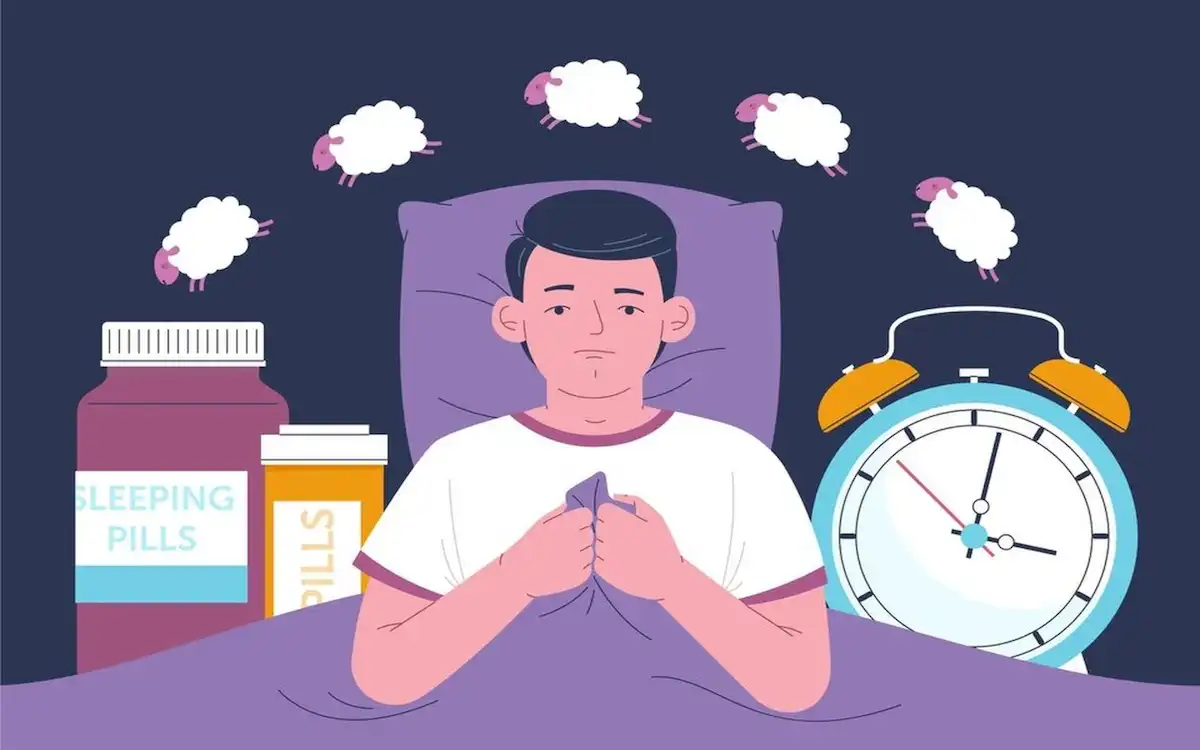Every day, the small choices you make can shape your health in big ways. Building good habits isn’t just about looking better, it’s about feeling your best and supporting your body and mind for the long run. When people ask, “what are the good habits related to health,” they’re really looking for ways to improve their daily routines to boost physical strength, sharpen mental focus, and lift their mood.
Positive habits like eating balanced meals, moving your body often, getting enough rest, and managing stress all work together to keep you well. They help you fight illness, stay energized, and enjoy life more. Understanding and practicing these healthy habits can give you a real advantage in every area of life.
Core Habits for Physical Health
What are the good habits related to health? They aren’t mysterious or out of reach—they often start with simple routines you practice every day. By focusing on core habits like balanced eating, moving your body, getting enough sleep, and avoiding the most harmful substances, you give yourself the best shot at feeling strong and energized. These steps may seem small, but together, they build the foundation for lifelong well-being. If you’re ready to start, here are practical ways to make these habits part of your routine.
Eating a Balanced Diet
The backbone of good health is what you put on your plate. Choosing whole foods, paying attention to portions, and staying hydrated are smart moves for anyone wanting more energy and resilience.
- Go for Whole Foods: Food close to its natural form—think fresh veggies, fruit, nuts, seeds, fish, eggs, and lean meats—delivers more nutrients and fewer empty calories than ultra-processed snacks.
- Practice Portion Control: Eating reasonable amounts helps you find the sweet spot—enough to fuel your day but not so much that you feel sluggish.
- Hydration Matters: Water plays a role in almost every body process. Most people need at least 8 cups a day, so keep a water bottle handy.
- Aim for Color: Build meals around colorful fruits and vegetables to pack in vitamins, minerals, and fiber.
Want extra ideas for meal planning that supports your goals? Check out this guide to the best balanced diet for weight loss.
Staying Physically Active
Movement isn’t just about burning calories—it’s about keeping your mind sharp, your sleep restful, and your immune system strong. Regular physical activity is one of the top answers to what are the good habits related to health.
- Types of Exercise:
- Cardio lifts your heart rate and burns fat (think brisk walking, cycling, swimming).
- Strength training keeps muscles and bones healthy (try bodyweight moves, weights, or resistance bands).
- Flexibility exercises like stretching or yoga reduce injury and keep you mobile.
Aim for at least 150 minutes of moderate activity each week—this could be 30 minutes most days. You can even break it up into shorter sessions. If targeting belly fat is your main goal, check out these best exercises for burning belly fat for inspired workout ideas.
Getting Quality Sleep
Never underestimate the value of sleep. Creating good sleep habits isn’t just for children—it serves adults at every stage in life.
- Set a Routine: Go to bed and wake up at the same times—even on weekends. This trains your internal clock and makes falling asleep easier.
- Limit Screen Time: Power down your phone and computer at least 30 minutes before bed so blue light doesn’t mess with your sleep quality.
- Create a Restful Space: Make your bedroom a sanctuary by keeping it dark, quiet, and cool.
When you get enough quality sleep, your mood lifts, memory sharpens, and your immune system functions better. Simple shifts in your nighttime habits can pay off in more productive mornings and better overall health.
Avoiding Harmful Habits
Steering clear of what doesn’t serve your body is as important as building up good habits.
- Limit Alcohol: Stick to modest amounts, or skip it altogether. Excess drinking stresses your liver, raises blood pressure, and increases risk for several diseases.
- Quit Smoking: Smoking damages nearly every organ. If you smoke, make finding support and tools to quit a top priority.
- Cut Back on Processed Foods: Pre-packaged snacks, sugary drinks, and fast food are loaded with calories but short on nutrition. The less you eat, the better your chances of feeling energized and staying healthy.
Developing these habits will move you closer to your wellness goals. For even more inspiration, explore these healthy habits to adopt to help you stay motivated and on track.
Good Mental and Emotional Health Habits
Taking care of your mind is as important as caring for your body. Mental and emotional health habits shape how you respond to challenges, manage relationships, and keep stress from taking over. These habits foster resilience and steady your mood, making daily life more enjoyable. Let’s look at simple but effective ways to boost psychological and emotional well-being as part of your overall approach to what are the good habits related to health.
Managing Stress Effectively
Stress is an everyday part of life, but how you handle it makes all the difference. When stress piles up, it can chip away at both mood and motivation. Developing healthy coping techniques can turn storms into manageable showers.
Some well-known tools include:
- Mindfulness: Slow down and notice your thoughts and feelings without judging them. This helps put situations into perspective.
- Meditation: Just a few minutes of meditation daily can reset your mind and body. It helps you stay calm, focused, and less reactive to triggers. To see how regular practice can make a difference, explore the details of how meditation lowers stress levels.
- Breathing exercises: Deep, steady breaths signal your nervous system to relax. Try inhaling for four seconds, holding, then exhaling for six.
- Physical activity: Moving your body relieves tension and distracts from worries.
- Journaling: Putting thoughts on paper creates distance from stressors and clarifies what matters.
Building a routine around these habits gives you a strong tool kit for whatever life throws your way. For more in-depth strategies, check out this resource on managing stress effectively.
Building Supportive Relationships
Social connections are a foundation for a happier, healthier life. Even just a few strong, supportive relationships can lift your spirits and buffer you against tough times. People with deep social ties often recover faster from illness, score higher on happiness tests, and feel less lonely.
Here are a few ways to nurture your relationships:
- Celebrate together: Take time to share positive events and milestones.
- Communicate openly: Being honest and listening without judgment fosters trust.
- Offer help and ask for it: Reciprocity strengthens bonds.
- Create routines: Regular calls or meetups help keep relationships strong, even during busy times.
Sharing your joys and challenges creates meaning and makes daily struggles feel lighter. The benefits of a healthy lifestyle extend beyond your body, supporting your ability to connect and thrive with others.
Practicing Mindful Self-Care
Self-care is more than bubble baths or an occasional night off—it’s an ongoing practice that protects your emotional reserves and helps you set limits. It means tuning in to how you’re feeling, respecting your needs, and making room for rest and growth.
Key elements of mindful self-care include:
- Setting healthy boundaries: Learn to say no when needed. Protect your time, energy, and emotional space.
- Regular self-reflection: Check in with yourself. What brings you joy? What drains you? Adjust your habits as needed.
- Seeking help when needed: There’s strength in asking for support, whether from friends, family, or professionals.
Ignoring your mind’s needs can lead to burnout or persistent sadness. For practical self-care ideas and support on tough days, explore tips on how to stop feeling depressed.
Building mental and emotional health habits is a vital piece of the answer to what are the good habits related to health. When you care for your mind, every part of your life benefits, from relationships and motivation to your immune system and long-term well-being.
Integrating Good Habits Into Daily Life
Sticking with healthy routines can be tough, but weaving them into your days makes success much more likely. When people ask “what are the good habits related to health,” they’re looking not just for ideas, but for ways to actually fit those habits into their everyday reality. From writing down your progress to troubleshooting setbacks and finding happiness in the process, the steps you take now lay the groundwork for steady growth and joy.
Setting Realistic Goals and Tracking Progress
Starting with clear, realistic goals helps you avoid overwhelm and boosts your sense of achievement. For health habits, this could be anything from drinking more water to getting more steps each day. The key is to make sure your goals are specific, measurable, and truly important to you.
Many find it helpful to:
- Use a simple journal or notebook to write daily wins or struggles.
- Try habit-tracking apps that remind you of your goals and log your progress.
- Keep a visible chart in your kitchen or workspace for a daily visual cue.
Whether you’re working to adjust your diet, squeeze in more movement, or pick up a sleep routine, tracking helps spot trends and keeps you on track. For example, anyone hoping to change body composition can use progress journals to stay motivated. For tips on how to adjust your goals depending on what you want to achieve, these fat loss and muscle gain strategies break down what works in practical steps.
Consistency matters more than perfection. When you set smaller, attainable milestones, you get to celebrate along the way.
Overcoming Common Barriers
Life gets busy, and motivation can dip when you least expect it. Barriers like time crunches, boredom, or a lack of support can knock you off course if you’re not ready.
Here are a few ways to stay consistent, even when things get tough:
- Plan ahead: Prep healthy snacks, set out workout gear, or schedule walks with a friend.
- Lower the bar on tough days: Even five minutes of movement or one healthy meal counts—don’t let a packed day wipe out your progress.
- Focus on routines, not willpower: When your habits are part of your daily rhythm, there’s less room for excuses.
- Ask for support: Family, friends, or online groups can keep you accountable when your energy dips.
Building healthy routines is like planting seeds—they need time to sprout, and sometimes a bit of extra water when things get dry. You don’t need to get it right every single day. Progress, even slow, is still progress.
Finding Joy in Healthy Living
Good health habits aren’t just chores—they can spark more happiness and satisfaction in your daily life. When you start noticing changes in how you feel, move, and sleep, it’s easier to see the payoff for your effort. Instead of focusing on what you “should” do, find the activities and meals that genuinely make you feel good.
Ways to enjoy the process:
- Try new recipes, fresh fruits, or colorful veggies that excite your palate.
- Turn exercise into play: dance, hike, toss a frisbee, or garden with friends.
- Mark progress with non-scale victories—like better moods, clearer skin, or less stress.
- Celebrate every small win along the way.
The benefits go far beyond just your physical body. Adopting good habits can lift your mood, boost your confidence, and help you build better connections with others. Curious about how these daily choices can ripple through to your overall happiness? Discover more about how healthy habits can transform your life through weight loss and well-being.
Making healthy living fun and rewarding gives you a reason to come back to your new habits—sometimes, that’s the biggest secret to lasting change.
Conclusion
Building a lifestyle around good health habits pays off in energy, happiness, and protection for your future. From eating whole foods and staying active to getting restful sleep and caring for your mind, these choices answer the real question of what are the good habits related to health. The impact lasts far beyond this week or month—the routines you develop now become your long-term foundation for healthy aging.
Simple daily steps make a difference. If you want more ways to keep your body and mind strong as you grow older, explore practical tips for healthy aging. For an even deeper look at heart protection through movement, see why exercise and heart disease prevention matter.
Which healthy habit will you start or renew today? Small efforts, when repeated, lead to real change. Thanks for reading, share your thoughts or your own wellness tips in the comments, and keep exploring for more inspiration.
FAQ:
How much sleep do adults really need?
Most adults need 7 to 9 hours of sleep each night. Good sleep helps your body recover, boosts memory, and keeps your mood steady.
Does drinking water help with health?
Yes. Staying hydrated helps keep your skin clear, your mind sharp, and your body running well. Aim for about 8 cups a day, but you might need more if you’re active or it’s hot out.
How often should I exercise each week?
Aim for at least 150 minutes of moderate activity, like brisk walking, each week. You can break it up into short sessions if needed. Try to add strength training, like lifting weights, twice a week.
Is skipping breakfast really bad?
Skipping breakfast can leave you tired and unfocused. A balanced breakfast with protein and fiber can jumpstart your day and help control hunger later on.
What are some easy ways to eat more fruits and vegetables?
Add berries to cereal, snack on carrot sticks, or toss extra veggies into soups or pastas. Try to fill half your plate with fruits and vegetables at each meal.
How can I cut down on sugar?
Read labels, choose water or unsweetened drinks, and swap out desserts for fruit. Gradually use less sugar in coffee or baking so your taste buds adjust.
Why is daily movement important if I already exercise?
Regular movement, like walking around the office or stretching, helps your metabolism and keeps your muscles loose. Long periods of sitting can raise health risks even if you work out.
What does “mindful eating” mean?
Mindful eating means paying attention to your food, eating slowly, and stopping when you’re full. This helps with digestion and can prevent overeating.
How important is stress management for good health?
Chronic stress can raise blood pressure and weaken your immune system. Find ways to relax, like deep breathing, short walks, or hobbies you enjoy.
Do I really need routine check-ups if I feel fine?
Yes. Regular check-ups help catch problems early, even if you feel healthy. They provide a chance to ask questions and update your vaccines.
How can I build healthy habits that actually stick?
Start small and focus on one change at a time. Write down your goal and track your progress. Find a buddy or join a group for extra support.
Can good habits help prevent illness?
They can lower your risk for heart disease, diabetes, and some cancers. Eating well, sleeping enough, staying active, and washing your hands all play a part.
What’s a simple way to improve my mood daily?
Try a short walk outside, even if it’s just ten minutes. Fresh air and movement can lift your mood fast.
How does limiting screen time help my health?
Spending less time on screens can improve your sleep, posture, and even boost your mood. Try screen-free breaks during the day or set a time to wind down before bed.
Should I avoid all fats in my diet?
No. Your body needs healthy fats from foods like nuts, fish, and olive oil. Limit saturated and trans fats, but don’t skip healthy ones.



 Importance of Hydration for Your Brain, Body, and Everyday Energy
Importance of Hydration for Your Brain, Body, and Everyday Energy  Healthiest Breakfast Cereal for Children
Healthiest Breakfast Cereal for Children  Anxiety Management Techniques
Anxiety Management Techniques  What Makes Fat in Our Body?
What Makes Fat in Our Body?  Best Diet to Reduce Risk of Diabetes
Best Diet to Reduce Risk of Diabetes  Long Term Effects from Botox
Long Term Effects from Botox